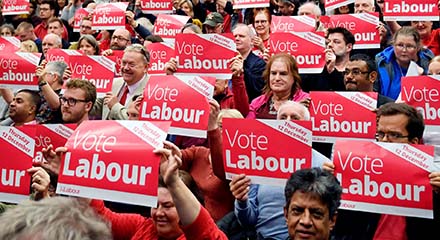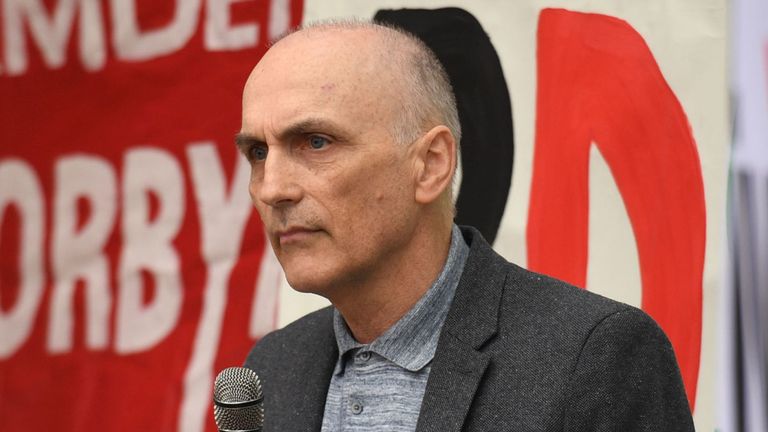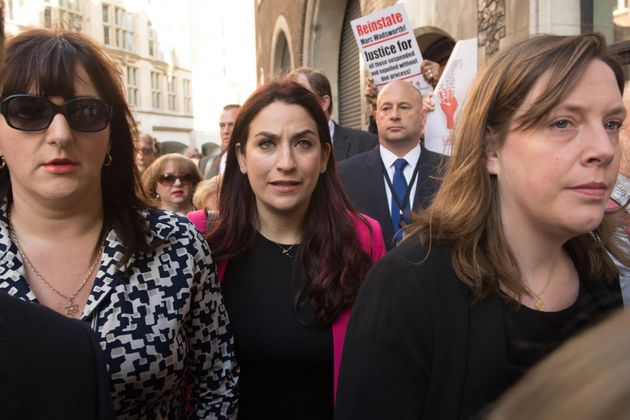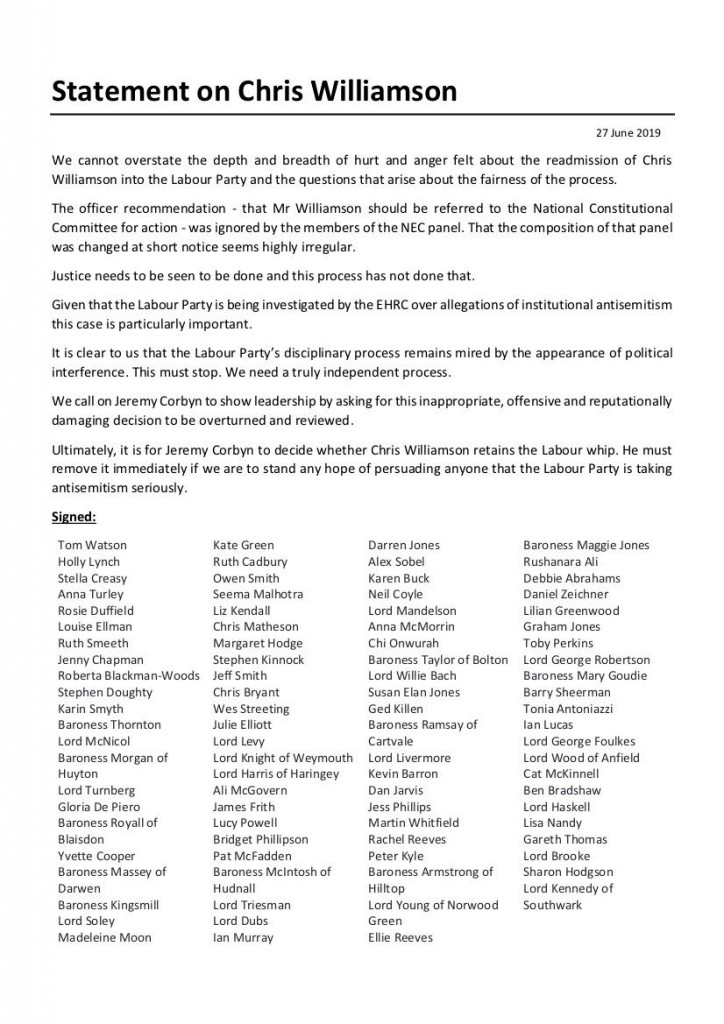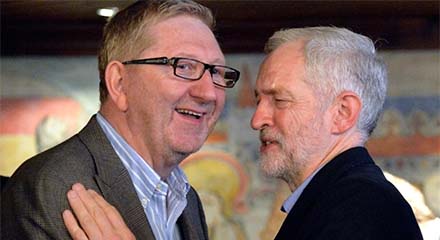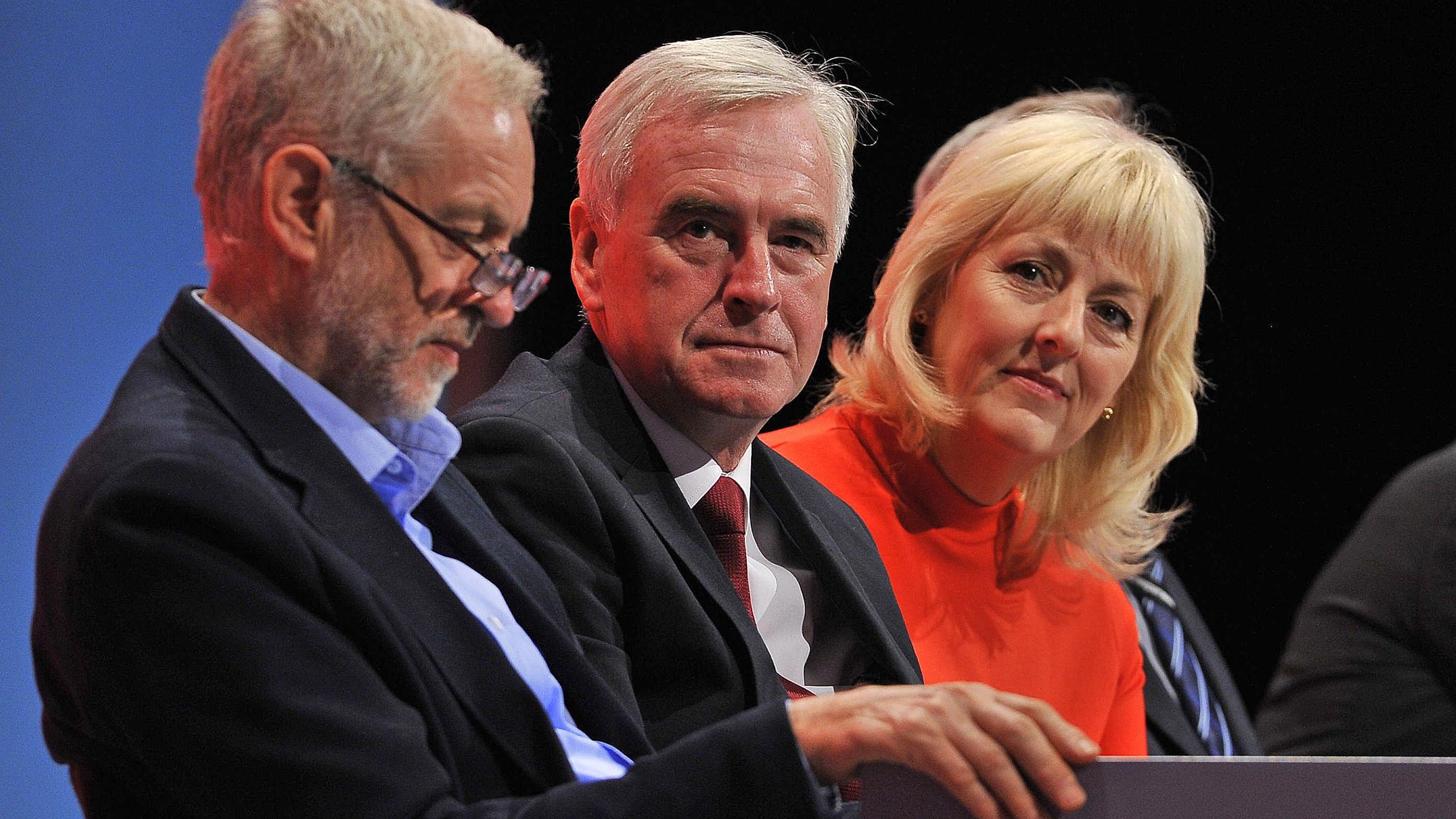Mike Macnair argues that the very aim of winning government office is misconceived and self-defeating
first published by the Weekly Worker
Labour’s severe defeat means the end of Jeremy Corbyn’s leadership of the party; he has already said he will step down. The right is demanding his quick departure, in the hope that they can make a coup against the left and purge the party; the left has been pressing for a slower transition in the hope that they can salvage something. Even if the Labour left succeeds in this aim, ‘Corbynism’ as it has existed since 2015 is over.
Corbynism offered, for a while, an actual opposition which could give a voice to those who had been silenced by the insistence of ‘New Labour’ (and ‘Orange Book’ Liberalism) that only free-market solutions were possible. But that opposition has now failed as a result of Jeremy Corbyn and his allies’ commitment to attempting to form the next government – already announced in 2015. 1)Eg. Corbyn, quoted at http://labourlist.org/2015/10/jeremy-corbyn-campaigners-set-up-new-momentum-group/ (Oct 8 2015) The Labour left may survive the defeat; but it is most likely to do so if it accepts that what is on the agenda is the struggle for an opposition and a voice, not – until we have substantially rebuilt the movement – the immediate struggle for a government.
It is constitutional loyalism which lies behind Labour’s ‘governmental illness’ shared by left and right. To overcome the problem needs a disloyalist party, one which seeks in the long term to overthrow the constitution rather than to play the constitutional game. That is – a Communist Party. Such a party would still be needed if Labour could be turned into a real united front of the class by eliminating the witch-hunting operations and allowing the far left to openly affiliate to the party. It will be equally needed if – as seems likely – the right wing of the trade union leaderships put the Labour right back in the saddle and the party is thoroughly purged to prevent a repetition of 2015 in the future.
Effective
The election of Jeremy Corbyn as Labour leader created a fundamental sea-change in British politics which Labour’s defeat has not reversed – yet. The sea-change consisted in the fact that a large constituency of opposition to the claims of neoliberalism, which had been effectively silenced under Blair, found a voice.
Throughout the Blairite ascendancy the subcurrent of popular grumbling could not find open expression. The Labour left remained utterly marginal. Although the far left outside the party could play an important role in single-issue street protests, as in the anti-war movement, its division into confessional sects (and the consequent unprincipled splitting operations of the Socialist Party in the Socialist Alliance, and then of the Socialist Workers’ Party in Respect, in search of apparatus control, and the self-sterilising bureaucratism of Left Unity) prevented it from giving a political voice to the silenced constituency.
Because of this new oppositional voice, Cameron failed to do to Labour in England in 2016 what he had done to it in Scotland in 2014 – get Labour to be ‘statesmanlike’ by backing the ‘establishment’ view, and then knife them with an English-nationalist turn. So it was necessary, for Cameron’s project, to take a sharp turn to the left as the Tories have succeeded in doing under Boris Johnson.
Theresa May fairly clearly thought that a limited rhetorical shift to the left would be enough. But in the 2017 election flatly contradictory messages came from May and some of her semi-‘Red Tory’ advisers on the one hand, and from the Chancellor ‘spreadsheet Phil’ Hammond on the other; and from a media trying simultaneously to promote Tory populism against Labour ‘elitism’ while denouncing Corbyn’s very limited reform proposals as wild ultra-leftism – a story which could not possibly be persuasive. Clinging desperately to it, May came across as the ‘May-Bot’ and lost the narrow majority she had inherited.2)Cf eg. A McElvoy, ‘Is Theresa May’s mix of tax justice, born-again statism and attacks on cartel capitalism a new ‘red’ Toryism?’ The Guardian October 9 2016; and ‘How a gamble that backfired brought Theresa May to the brink’ The Guardian June 11 2017
An immediate consequence was the overthrow, by the UK Supreme Court, of Vince Cable’s abolition of the employment rights by stealth, through raising tribunal fees. The government did not, as Thatcher would have done, promptly reverse the decision by statute.3)More discussion in M Macnair, ‘Rhetoric and political realities’ Weekly Worker August 3 2017 ore, May’s “austerity is over” announcement had to be delayed until October 2018. 4)‘Theresa May declares ‘austerity is over’ after eight years of cuts and tax increases’ Independent October 3 2018 ‘Austerity’ was always really a policy of privatisations and redistribution towards the Tories’ favoured groups; 5)Cf eg C Berry, ‘Austerity is over? It never really began’ https://blogs.lse.ac.uk/politicsandpolicy/austerity-ending-hypothesis/. Also, among many others, A Chakrabortty, ‘Austerity is far more than just cuts. It’s about privatising everything we own’ The Guardian May 24 2016 but the abandonment of the rhetoric was evidence that concessions had to be made, as a result of the creation of a voice for the silenced opposition.
The effects persist, in Johnson’s announcement of major infrastructure spending in the north, and in his explicit rejection of Brino by proposing a hard deadline on trade negotiations with the EU. Thus Johnson is still, even after his election victory, continuing to push Brexit-based nationalist populism.6)‘Boris Johnson plans to pour billions into Midlands and North’ Financial Times December 15 2019; ‘Brexit bill to rule out extension to transition period’ BBC News December 17 2019. A more general (if implausible) argument is made by Robert Colvile, ‘Johnson is serious about Tory transformation’ The Times December 16 2019
Concessions can be won from a Tory government – if an open opposition projects a radical alternative. A Labour government, on the other hand, might force through the most effective anti-union laws, as the 1974-79 Wilson-Callaghan government did, or privatisations and fraudulent ‘private finance initiative’ deals which cripple health and education with debt burdens, as the 1997-2010 Blair-Brown government did.
Governmentalism
Corbyn and his associates could only see a way forward through winning a general election and forming a government. The politics of effective long-term opposition were beyond their ken – and remain beyond the horizon of most of the left. This short time-horizon and fetishism of government can be seen in three ways.
First, the Labour right have been campaigning for a Tory victory since 2015, through endless attacks on Corbyn, his allies and his authority, hoping it would allow them to regain control of the party as happened after 1983. In addition, they have been pushing endlessly for the ‘statesmanlike’ remain policy. The right’s victories in moving Labour towards remain were decisive in returning Tory MPs in traditional Labour seats. The Corbyn leadership has done hardly anything to fight this.
Any actual crack-down on the Labour right would have been met with a split and the creation of a new ‘Social Democrat Party’ – leading to electoral defeat, as in 1983 and 1987. Allowing the right freedom to campaign against the party from within, however, has led to just such a defeat – and, moreover, a severe defeat, without even the merit a split might have had of getting rid of many of the right-wingers or creating the conditions for a revival of grassroots party organisations which rightist apparatchiks have held onto and held down. In the medium-term aftermath of the 1931 split and defeat, Labour rebuilt its base. Without ousting the right and de-managerializing the left, that cannot be done.
Second, the Labour leadership has essentially adopted a policy dependent on not confronting the effective monopoly of the advertising-funded and hence corrupt media and the state’s BBC. The very late production of the manifesto – some of it quite good – and the accompanying efforts to use ‘new media’ to get the message across, were too little, too late. The leadership’s policy has been – most strikingly in relation to the ‘anti-Semitism’ defamation – to try to divert attention, and hope any issues except the NHS and ‘austerity’ will go away.
This issue is interlocked with that of the Labour right. To campaign effectively against media defamation, and to get the Corbynistas’ policy messages across, would have required reviving the actual face-to-face operations of the constituency and ward branch parties, as well as Labour working to create its own media. This would require facing down the Labour right, who remain determined to hold on to the party apparat and to keep the party dependent on the corrupt media.
Thirdly, Labour manoeuvring itself into a position where it would be seen as a remainer party was not only the work of the party right, nor even of them together with the purblind ‘left remainers’. Rather, the party leadership has been persistently seeking and demanding an early general election. It was the hope of bringing the government down through parliamentary manoeuvres which led them to support a succession of remainer procedural initiatives in which Tory remainers refused to actually bring the government down. The Labour parliamentary leadership, by stringing along with these initiatives, presented themselves over months as a mere tail to the parliamentary cretinism of the Tory and Lib Dem remainers.
The denouement of this policy arrived at the end of October, when the SNP and Lib Dems backed Johnson’s call for a general election, forcing Labour’s hand and producing an election at Johnson’s preferred time and on Johnson’s terms. 7)J Rentoul ‘Boris Johnson has got the election he wanted – thanks to Jo Swinson’ Independent October 29; ‘Blundering Swinson’s gamble on forcing poll’ The Express December 15 2019 Idiot elements of the left, like Socialist Worker, were still demanding an early election when it was entirely clear that this was Johnson’s demand. But the idiocy was prepared by the Labour leadership themselves over the past four years.
Loyalist delusions
Underlying Labour’s governmental illness is a delusion that if Labour commits to playing by the rules of the constitutional order, partial concessions to the working class can be won through forming a government. This supposition is expressed in the idea that the UK is a ‘democracy’ and that the governmentalist line is ‘democratic socialism’. 2015-19 was a demonstration of the falsity of the idea. The capitalist class does not play by the rules. Loyalty to the United States, and willingness to accept the generalised bribery regime (‘sleaze’), are demanded of British politicians by both the state core and the corrupt media. The demands are enforced by Big Lie techniques: the ‘anti-Semitism’ scandal is only a ‘Zinoviev letter’ on a larger scale. 8)‘Zinoviev letter was dirty trick by MI6’ The Guardian February 4 1999 The Liberal Democrats and the Scots nats are not potential allies of Labour, but political enemies. Concessions are won from the capitalists not by playing nice, but by the combination of carrot and stick; Corbyn and McDonnell’s policy has been all carrot and no stick.
The stick has to be threats to the constitutional order. The concessions of 1948-78 were products of Soviet tanks on the Elbe, mass communist parties in France, southern Europe and in many colonial countries, and broader mass hostility to capitalism as a result of the 1930s and 40s. As long as the capitalists think that their regime will remain undisturbed, the concessions disappear; the brief life of Labour as an opposition has produced some limited concessions.
The future of the Labour Party can go in one of two directions. The first, if unlikely, would be a break with the right and their witch-hunting and constituting Labour as a united front party of the whole workers’ movement – a party of opposition, because it could not hope to form a government at the next general election.
Such a party would need within it an affiliate party which posed socialism – not as moral values but as an actual alternative to capitalist order – and fought openly for the overthrow of the constitution. It would work continuously to discredit both British and ‘European’ nationalism, the monarchy and House of Lords, the officer corps, the sale and denial of justice through the ‘free market in legal services’, the advertising-funded media, and so on: a Communist Party, in other words. That long-term activity would undermine the manipulations of the regime which have allowed Johnson to win.
The more likely future is that the trade union leaders are conned into purging the party of leftists for the benefit of the rightwing, in the hope of a new 1997. This hope is delusional: as we have seen in Scotland in 2015 and in northern and midlands England in this election, the restoration of Blairism leads only to Pasokification and the marginalization of Labour.
But suppose it happens. The left would be motivated to try, yet again, to create a new party. But if they don’t draw the lesson of breaking with the Corbynites’ governmental illness, what they will create will inevitably be a new Syriza at best – the road to another episode of demoralization. It remains the case that what is needed and missing is a party disloyal to the constitution: a Communist Party l
mike.macnair@weeklyworker.co.uk
- ↩︎
- Cf eg. A McElvoy, ‘Is Theresa May’s mix of tax justice, born-again statism and attacks on cartel capitalism a new ‘red’ Toryism?’ The Guardian October 9 2016; and ‘How a gamble that backfired brought Theresa May to the brink’ The Guardian June 11 2017.↩︎
- More discussion in M Macnair, ‘Rhetoric and political realities’ Weekly Worker August 3 2017.↩︎
- ‘Theresa May declares ‘austerity is over’ after eight years of cuts and tax increases’ Independent October 3 2018.↩︎
- Cf eg C Berry, ‘Austerity is over? It never really began’ https://blogs.lse.ac.uk/politicsandpolicy/austerity-ending-hypothesis/. Also, among many others, A Chakrabortty, ‘Austerity is far more than just cuts. It’s about privatising everything we own’ The Guardian May 24 2016.↩︎
- ‘Boris Johnson plans to pour billions into Midlands and North’ Financial Times December 15 2019; ‘Brexit bill to rule out extension to transition period’ BBC News December 17 2019. A more general (if implausible) argument is made by Robert Colvile, ‘Johnson is serious about Tory transformation’ The Times December 16 2019.↩︎
- J Rentoul ‘Boris Johnson has got the election he wanted – thanks to Jo Swinson’ Independent October 29; ‘Blundering Swinson’s gamble on forcing poll’ The Express December 15 2019.↩︎
- ‘Zinoviev letter was dirty trick by MI6’ The Guardian February 4 1999
References
| ↑1 | Eg. Corbyn, quoted at http://labourlist.org/2015/10/jeremy-corbyn-campaigners-set-up-new-momentum-group/ (Oct 8 2015 |
|---|---|
| ↑2 | Cf eg. A McElvoy, ‘Is Theresa May’s mix of tax justice, born-again statism and attacks on cartel capitalism a new ‘red’ Toryism?’ The Guardian October 9 2016; and ‘How a gamble that backfired brought Theresa May to the brink’ The Guardian June 11 2017 |
| ↑3 | More discussion in M Macnair, ‘Rhetoric and political realities’ Weekly Worker August 3 2017 |
| ↑4 | ‘Theresa May declares ‘austerity is over’ after eight years of cuts and tax increases’ Independent October 3 2018 |
| ↑5 | Cf eg C Berry, ‘Austerity is over? It never really began’ https://blogs.lse.ac.uk/politicsandpolicy/austerity-ending-hypothesis/. Also, among many others, A Chakrabortty, ‘Austerity is far more than just cuts. It’s about privatising everything we own’ The Guardian May 24 2016 |
| ↑6 | ‘Boris Johnson plans to pour billions into Midlands and North’ Financial Times December 15 2019; ‘Brexit bill to rule out extension to transition period’ BBC News December 17 2019. A more general (if implausible) argument is made by Robert Colvile, ‘Johnson is serious about Tory transformation’ The Times December 16 2019 |
| ↑7 | J Rentoul ‘Boris Johnson has got the election he wanted – thanks to Jo Swinson’ Independent October 29; ‘Blundering Swinson’s gamble on forcing poll’ The Express December 15 2019 |
| ↑8 | ‘Zinoviev letter was dirty trick by MI6’ The Guardian February 4 1999 |
